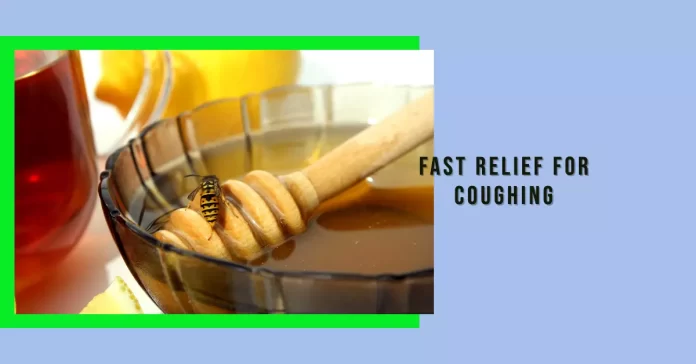Coughing can significantly disrupt your daily life and make you feel miserable, whether it’s a dry cough or one accompanied by mucus. Finding relief becomes a top priority. Luckily, several effective home remedies and treatments can help alleviate that persistent cough and restore your well-being. We will break down these proven methods to help you find the relief.
Here are the 10 Home Remedies and Treatments You Can Try
Honey and Warm Water
Honey has natural soothing properties that can help ease coughing and sore throat. Mix two teaspoons of honey in a warm glass of water and sip on it slowly. This concoction can provide relief from irritation and discomfort.Ginger Tea
Ginger is a powerful natural remedy for coughs and colds. Slice fresh ginger and steep it in hot water for a soothing cup of tea. You can add honey and lemon for extra flavor and relief. Ginger tea helps reduce inflammation in the respiratory tract.Steam Inhalation
Inhaling steam can loosen mucus and soothe your airways. Boil water, pour it into a bowl, and slowly inhale the steam while covering your head with a towel. Be cautious not to burn yourself.Hydration
Staying hydrated plays a crucial role when you have a cough. It helps keep your throat moist and can ease irritation. Drink plenty of water, herbal teas, and clear broths throughout the day to stay hydrated and alleviate your cough.Saltwater Gargle
Gargling warm salt water can help reduce throat irritation. Dissolve half a teaspoon of salt in a warm glass of water and gargle several times daily.Rest
Resting is often underestimated but is essential for a speedy recovery. Give your body the time to heal, and avoid strenuous activities.Humidifier
Using a humidifier in your room can help maintain air moisture, preventing your throat from drying out and worsening coughing, especially at night.Elevate Your Head
If nighttime coughing is a problem, try sleeping with an extra pillow to elevate your head. It can help prevent mucus from pooling in your throat.Over-the-counter (OTC) Medications
OTC cough syrups and lozenges can provide temporary relief. Always adhere to the recommended dosage and seek advice from a healthcare professional when necessary.Seek Medical Attention
If your cough persists for a few weeks, is accompanied by severe symptoms, or if you’re concerned, don’t hesitate to consult a healthcare professional. It’s essential to check for any underlying conditions.
Conclusion
To wrap it up, these proven home remedies offer fast relief for coughing. Remember to stay hydrated, try soothing teas, and get ample rest. But, if your cough persists or worsens, consult a healthcare professional for a thorough evaluation.
Frequently Asked Questions (FAQs)
What makes us cough?
Coughing is your body’s way of clearing irritants from your throat or airways. Common triggers include infections, allergies, smoking, or even inhaling something irritating.
When should I talk to a doctor about my cough?
If you have a cough that persists for over three weeks and experience high fever, severe chest pain, or coughing up blood, it’s crucial to seek prompt medical advice.
Can I pass on my cough to others?
Yes, coughs can be contagious, mainly if caused by infections like colds or flu. Cover your mouth and nose when coughing to prevent spreading germs.
How can you stop a cough at home?
Try warm drinks with honey for relief. Stay hydrated, use a humidifier, and get plenty of rest to help ease your cough.
Is a dry cough different from a wet one?
Indeed, a dry cough doesn’t produce mucus, whereas a wet cough does. The causes and treatments can vary depending on the type.
Can I use store-bought cough medicine to feel better?
Over-the-counter cough syrups can alleviate symptoms but cannot cure the root cause. Follow the instructions and consult a pharmacist if needed.
How long does a typical cough stick around?
Most common coughs resolve within a few weeks. If your cough persists beyond this, it’s time to seek medical advice.
What can I do to prevent getting a cough?
Wash your hands frequently, avoid close contact with sick individuals, and consider getting vaccinated for conditions like the flu.
Are there foods or drinks that can make my cough worse?
Dairy products, sugary foods, and caffeinated beverages can sometimes worsen coughs. Staying hydrated with water or herbal teas is often a better choice.
Can long-term conditions like asthma or GERD cause a never-ending cough?
Yes, chronic conditions like asthma or gastroesophageal reflux disease (GERD) can lead to persistent coughs. Managing these conditions with proper medical care can help alleviate the cough.
- How to Treat Cough Fast for More than a Week Effectively
- How Seaside Air May Be Your Natural Cough Remedy
- 10 Ways Garlic Acts as a Potent Natural Antibiotic
Valuable Treatment for Cough
Honey, regarded by the World Health Organization as a valuable demulcent for cough treatment, has a complex composition with potential antimicrobial, antioxidant, and anti-inflammatory properties. Studies have shown its effectiveness against various bacteria, including those in the upper respiratory tract. Honey finds application in both traditional and modern medicine. It’s crucial to emphasize that it should not be given to children under one year old due to the risk of contamination. The effectiveness of honey-based treatments may stem from their sweetness, which can stimulate salivation and the production of airway mucus, thereby reducing cough. (Reference: National Library of Medicine)










